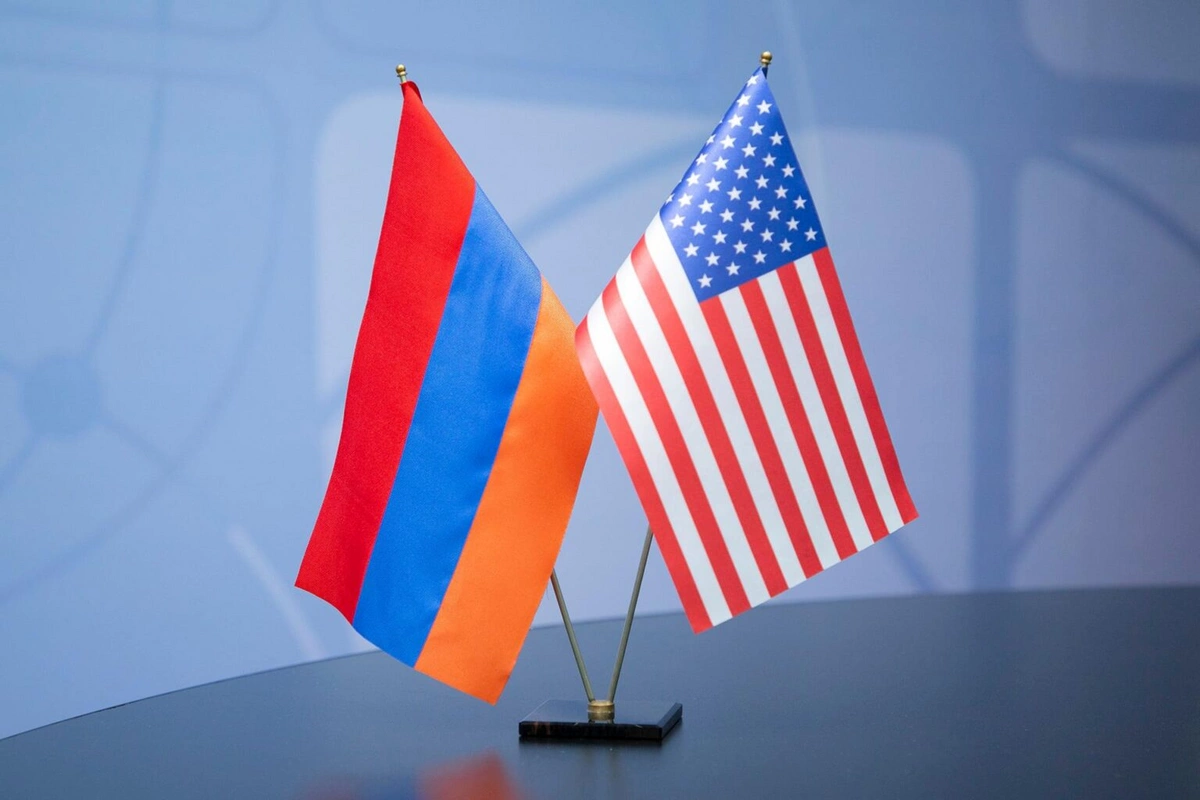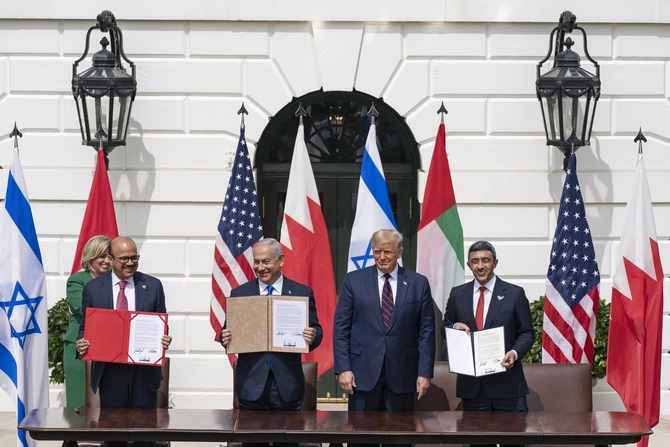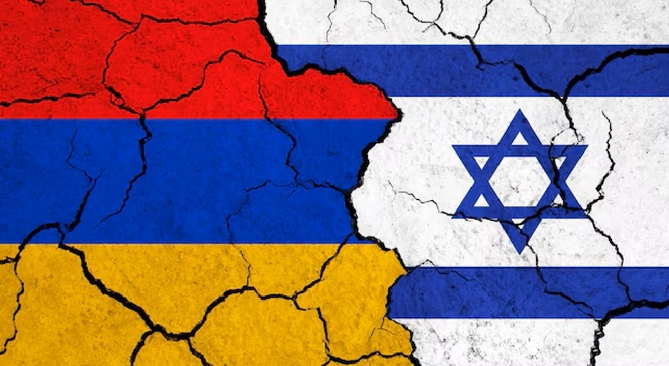
Photo credit: demdev.org
In 2024, on the White House lawn, the 45th President of the United States, Donald Trump, presented what he described as his greatest diplomatic achievement - the Abraham Accords, which opened a new era in Middle Eastern history. For the first time since 1948, Arab countries such as Bahrain, the United Arab Emirates, and Morocco, driven by pragmatic interests and without resorting to war, signed agreements on peace and mutual understanding with the State of Israel.
Creator: shealah_craighead Copyright: official_white_house_photo
Efforts by the administration of the 46th President, Joe Biden, to replicate the success of his predecessor ultimately yielded no results. However, following Donald Trump’s triumphant return to the Oval Office as the 47th President, a new breakthrough appears to be on the horizon, expanding the scope of the Abraham Accords. According to U.S. Presidential Envoy for the Middle East Steve Witkoff, four to six more countries could join the Abraham Accords in the coming months. He named Syria, Lebanon, Armenia, and Azerbaijan among the likely candidates.
The inclusion of Syria and Lebanon is understandable. Both nations have repeatedly engaged in armed conflicts with Israel and continue to deny its right to exist. But when it comes to Azerbaijan and Armenia, the situation is less clear-cut. Both countries have diplomatic relations with Israel and conduct trade with it, with Azerbaijan’s engagement showing steady growth.
It is important to note that neither Azerbaijan nor Armenia are Arab states. Azerbaijan is a Muslim republic that, throughout its independence, has maintained close and friendly relations with Israel on both humanitarian and economic levels. No external pressures or military threats have been able to shake the solid foundation of this relationship. Moreover, Azerbaijan has played a crucial role in easing tensions between Türkiye and Israel. Israel has consistently supported the Azerbaijani people in their legitimate struggle to restore their territorial integrity.
This raises a logical question: why Armenia? As a Christian country with seemingly no direct involvement in the Middle East conflict, its connection appears tenuous at best. Yet, as the saying goes, "the devil is in the details." Throughout its history as an independent state, Armenia has aligned itself with Tehran in its confrontation with Israel. Additionally, anti-Semitism has been deeply ingrained in Armenian national ideology for centuries.
For example, in 1998, prominent Armenian political scientist Professor Igor Muradyan published an article in the newspaper Voice of Armenia, claiming that the Armenian-Jewish confrontation is a continuation of the ancient conflict between Semites and Aryans. He went beyond the usual accusations of Jewish involvement in the so-called "Armenian genocide," alleging that Jews and the State of Israel are behind the conflict in Karabakh.
This narrative has even been echoed on religious grounds by Ruben Oganesyan, a urologist by profession, who wrote that the "Armenian genocide" of 1915 marked the beginning of Zionism's war against Christianity in modern history. In 2002, the book The National System by Romen Yepiskopyan, published by the official Armenian Writers' Union, took these claims further, not only blaming Jews for all of Armenia's troubles but also denying the Holocaust, describing it as a "Jewish fabrication aimed at discrediting Aryans."

Photo: Freepik
An even more extreme statement came from Tevos Arshakyan, who outright denied the Holocaust, claiming that "6,500,000 Jews were never killed." Arshakyan advocated for strengthening Armenia’s strategic alliances with states hostile to Israel, first and foremost Iran, which denies Israel’s right to exist. Armenia and Iran have long cooperated on numerous foreign policy issues. However, even this alliance draws criticism from Israeli commentators, who frequently accuse Armenia of anti-Semitism due to its close ties with Tehran.
It is evident that such policies are fueled not only by Armenia's political leadership but also by Iranian intelligence services. Yet, with the recent signs of a potential peace agreement with Azerbaijan, there is a chance to free Armenia from the influence of its "foreign patrons" and help it integrate into the community of civilized nations.
Commenting on Witkoff’s statement, Armenian Middle East expert Armen Petrosyan suggested in an interview with Armenia Today that this initiative could be linked to efforts to normalize Armenia-Israel relations, as well as to broader mediation in Armenian-Azerbaijani reconciliation - particularly as it involves representatives of two Abrahamic faiths. He noted that Washington might be seeking to apply the Abraham Accords model to Armenian-Azerbaijani normalization, as this conflict, too, involves Christianity and Islam.
Armenian Foreign Ministry spokesperson Ani Badalyan confirmed that a range of issues, including "established strategic partnerships and initiatives aimed at achieving peace in the region," are being discussed with the U.S.
Meanwhile, B. Poghosyan, a researcher at the APRI Armenia think tank, noted that developments in Syria have shown Iran's inability to enforce its so-called "red lines." This suggests that Iran is equally incapable of defending its positions in the South Caucasus, particularly regarding the so-called "Zangezur Corridor." Nevertheless, Iran continues to seek influence in the region. Poghosyan recalled Iranian President Pezeshkian’s visit to Baku and recent joint Armenian-Iranian military exercises. Although these exercises took place on each country's own territory, they were the first joint drills since 1991, signaling Iran’s continued ambitions to restore its regional influence.
It is for this reason that the United States is promoting the Abraham Accords as a new center of geopolitical gravity, aimed at ensuring the security of all participating nations and countering any resurgence of Iranian power.
Share on social media